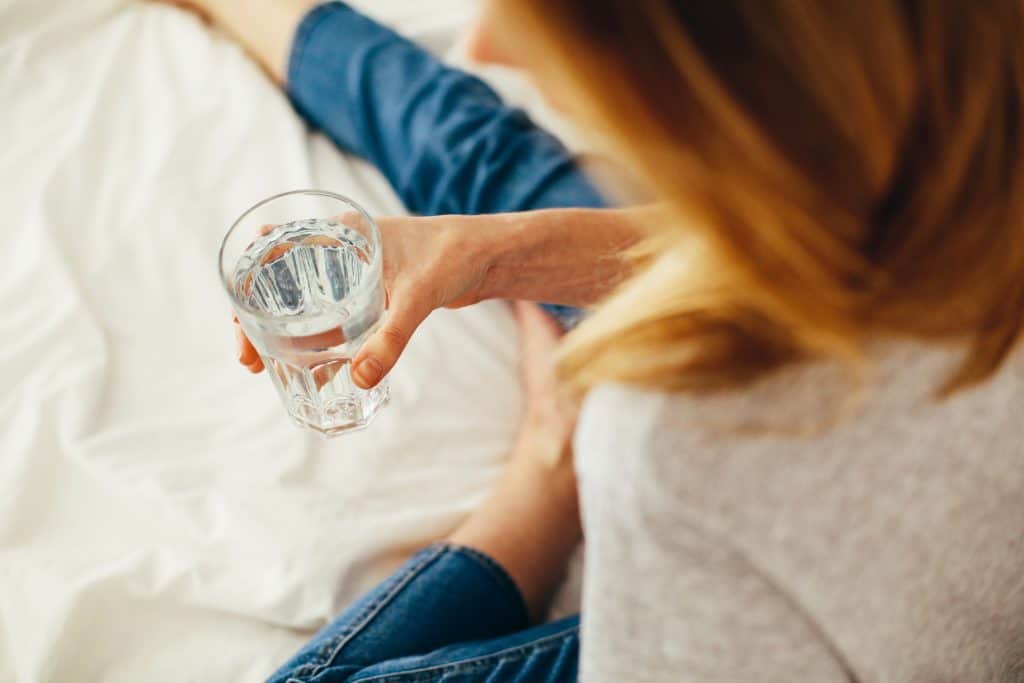A new study reports that adults who snooze six hours per night are more likely to be dehydrated than those who get eight hours of shut-eye.
These findings may quench more than just our thirst. Not only does it provide another reason to get enough sleep, but also suggests that drinking water could help combat fatigue.
In the study, scientists looked at how sleep affected hydration levels in over 2,000 U.S. and Chinese adults. “We wanted to examine this question in two distinct cultures, which may have different dietary and health behaviors that influence sleep and water intake patterns,” lead researcher Asher Yoel Rosinger explained to Sleepopolis.
To do this, participants were asked questions about their sleep habits and provided urine samples that were analyzed for biomarkers of hydration. The results revealed that adults who reported slumbering for six hours had significantly more concentrated urine in their bodies and were 59 percent more likely to be dehydrated than adults who slept eight hours. Researchers believe this is due to the release of a hormone called vasopressin.
“Previous research indicated that [vasopressin] is released in a circadian rhythm, which increases late in the sleep period to help prevent dehydration,” remarks Rosinger. “So we hypothesized that if a person is getting less sleep, then they may not be getting the same protective effects of the hormone throughout the day.”

In Bed? Bottoms Up!
So what does this have to do with our sleep? For one, not being adequately hydrated can have similar side-effects to sleep loss, compromising energy levels and cognitive performance the following day. Additionally, a lack of fluids before bed can lead to nocturnal leg cramps — also called charley horses — which can cause major disruptions in the middle of the night.
So if you need yet another reason to get more Zzz’s, this research suggests getting eight hours of slumber will help you stay hydrated and could give you a better chance of feeling refreshed the next morning. Rosinger says to drink 2.7 liters for women and 3.7 liters for men to meet your daily H20 needs.
And if you don’t clock in eight hours a night — don’t fret just yet. Rosinger recommends checking the color of your urine to see if you need to up your water intake. “If it’s dark yellow and you regularly have headaches and fatigue, increasing plain water intake by a glass or two above what you are currently drinking may help.”
Cheers to that.